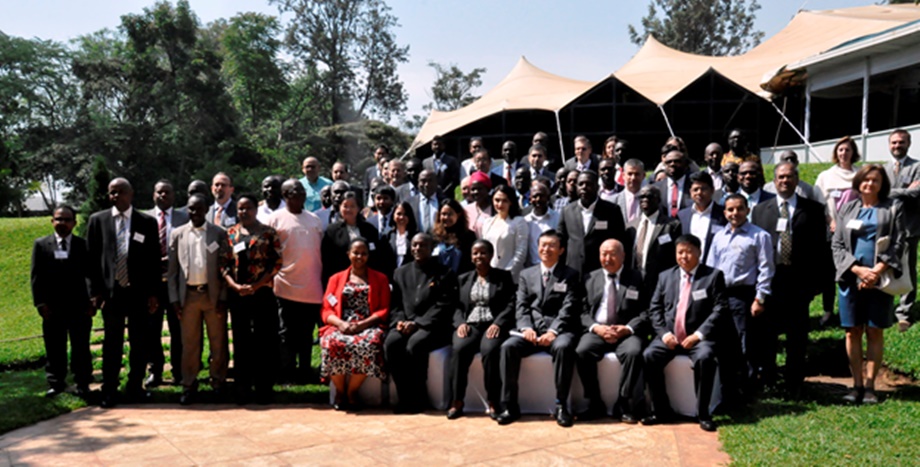Kigali, 18 September 2018:The Government of Rwanda is hosting the Scaling Up Renewable Energy Program in Low Income Countries (SREP) Pilot Countries Meeting in Kigali from 18-20 September 2018. The objectives of this meeting is to foster dialogue among SREP pilot countries on issues related to the design and implementation of SREP investment plans and other renewable energy and energy access-related programs and activities. The two-day event will focus on major themes such as SREP stocktaking (resource situation, future of SREP and implementation), renewable energy and energy access, financing renewable energy projects and role of the private sector, multi-tier framework (MTF) on energy access, gender, results, evaluation and learning.
The SREP meeting has convened an estimated 80 participants from multilateral development banks (MDBs), the private sector, SREP Sub-Committee members and observers, representatives from the Government of Rwanda and other relevant stakeholders.
Speaking at the official opening of the meeting, Minister of State in charge of Energy, Water and Sanitation, Hon. Germaine Kamayirese, emphasized the commitment of the Government of Rwanda to prioritizing and continuously facilitating investments in the sector to fulfill its ambitious target of achieving universal energy access by 2024. “This target is expected to be realized through the use of both on grid (52%) and off grid (48%) electrification approaches.” Minister Kamayirese said, adding, “the predominant off-grid solutions used in Rwanda are mainly through solar home systems and mini grids. Due to the level of service that these systems provide, the uptake for these solutions has improved drastically from 1% in 2016 to 11% by end June 2018.”
Minister Kamayirese thanked the Climate Investment Funds (CIF) for the $50 million in SREP support they have provided to the Government. The CIF-supported Renewable Energy Fund project, currently in operation, is expected to provide financing to households that need access to electricity.
She further appreciated the SREP-supported Multi-Tier Framework (MTF) survey, conducted in 2016 and the results published this year. “This new framework has resulted in the improvement of how data on access to electricity and access to modern energy cooking solution is collected and reported”.
Hon. Kamayirese commended this forum which comes at a time when developing countries are facing similar economic, social, and environmental challenges that require solutions to improve the livelihoods of our communities and achieve the SDG 7 target.
In his keynote address to the SREP meeting, Dr. Kandeh Kolleh Yumkella, Former UN Under-Secretary-General and founding CEO for Sustainable Energy for All, noted that at the rate at which most of Sub-Saharan Africa is going, the continent should not achieve SDG-7 in the next 12 years.
“Energy Access at Tier 1 and Tier 2 levels must be declared a human right. No one should be without access to three bulbs and or a phone charger by 2030”, He mentioned.
He commended the Government of Rwanda’s leadership for the vision and coherent approach for having adopted an ambitious, deliberate, and integrated approach that will enable them to achieve universal access to energy ahead of many similar African economies.
Dr. Zhihong Zhang, Senior Program Coordinator of the Climate Investment Funds, welcomed participants to SREP Meeting which marks the 10th anniversary of the $8 Climate Investment Funds.
“SREP investments are typically the first of its kind in these countries to help create an enabling environment and reduce the risks of deploying renewable energy technologies, ranging from solar to geothermal, wind, small hydro, and biomass,” said Dr. Zhang.

 ENGL
ENGL KINY
KINY